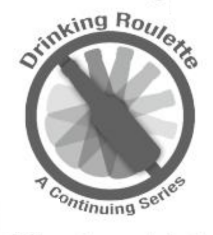Even minor consumption of alcohol can be harmful, new studies show

March 30, 2017
By Jacob Feitelberg, Outside News Editor
Everyone knows it’s dangerous to get drunk. But a growing number of scientists are considering the possibility that any alcohol at all is toxic to humans.
Science Department Chair Mr. Ayden Jacob noted that technically, there is a certain amount of alcohol that does not cause any noticeable physiological effects on the human body. But according to him, that is extremely low.
“Alcohol is a damaging toxin to the body, it’s a poison,” said Mr. Jacob. “Now sometimes we like poison, because it subdues our feelings of angst or social anxieties. So does ecstasy, so why is one okay and not the other?”
Evidence is slowly growing to support this view.
The World Health Organization put out a report in may of 2014 saying that alcohol can lead to many types of cancer, and that contrary to some studies that say in moderation it’s good for the heart, alcohol actually increases the risk of cardiovascular disease.
“It’s a common perception that alcohol, and red wine in particular, is helpful for the heart, but that perception is not based on any particularly good evidence,” said Dr. Michael Shapiro, a cardiologist with Oregon Health Sciences University in Portland, quoted in webMD.com. “If there is any benefit from alcohol — and that’s not entirely clear — it’s probably modest.”
The National Cancer Institute (NCI) has found that alcohol is probably associated with about three percent of all cancer deaths, mostly head and neck, esophegeal, liver and especially breast cancer.
“For every 10 grams of alcohol consumed per day (slightly less than one drink),” the researchers observed a small (7 percent)increase in the risk of breast cancer,” the institute’s website states, citing American studies.
It then quotes a million-person study in England that found a risk increase of 15 percent.
How does this happen? According to clevelandclinic.com, alcohol can increase bacteria in the gut, which could migrate to damage the liver.
Alcohol can also weaken both the heart and the immune system, and increase women’s estrogen levels, which are associated with breast cancer. And according to NCI, it also blocks the body’s absorption of cancer-fighting substances like vitamins, while increasing oxidation – which damages the body’s DNA, proteins and fats.
In the brain, scientists find few negative physiological effects in adults – the real problems are psychological and in behavior. But teenagers are a different story, according to Shalhevet SAS Psychology teacher Ms. Tove Sunshine, and alcohol causes actual physical harm.
“The development of the prefrontal cortex is still under construction until about age 24 or 25,” Ms. Sunshine said. “Those parts of the brain have to do with being able to defer gratification, judgment about long-term consequences, all of those kinds of inhibitory [skills] – being able to inhibit behavior.
“Alcohol contributes to dampening that part of your brain which is not fully developed yet.”
Additionally, Ms. Sunshine stressed that the greatest danger of alcohol to teenagers and college students is binge drinking, which is drinking a lot of alcohol in a short period.
“That type of drinking, which is taking a lot of alcohol in a very short period of time, seems to actually have an effect of killing neurons,” Ms. Sunshine said. “So when you joke about how many brain cells you’ve killed, you might not actually be joking.”
Can moderate drinking lead to binge drinking, and other forms of alcohol abuse? If so, that might be another reason not to drink at all – even if the benefits of light drinking are real.
“There are some studies with wine and with beer, moreso than hard liquors, that they actually may have some beneficial results,” said Ms. Sunshine. “Moderate drinking that is genuinely moderate is for most people probably safe.”
But according to mayoclinic.org, any possible benefits of moderate drinking do not outweigh the risks of alcoholism, so nobody should start drinking now with benefits in mind.
Mr. Jacob said that no alco
holic started off as an alcoholic, but rather grew into being one.
“They started out in moderation and they developed little by little into an alcoholic,” said Mr. Jacob. “The theory that people are born alcoholics is incorrect.”
An article in Men’s Health magazine reported that men are twice as likely as women to have what it called “alcohol use disorder,” or AUD. It said about 14 percent of men have this problem, which it described as not as severe as alcoholism but still causing reduced productivity, oversleeping, preoccupation with drinking, and regret.
People with AUD “occasionally drink more than they intended to, wish they could cut down, or spend too much time thinking about drinking.”
Doctors recommend treatment for these people, though they are not as severely addicted as alcoholics.
Mr. Jacob stressed similarly that moderate drinking can lead to alcohol dependency and addiction.
“Consistent moderation can lead to alcoholism,” said Mr. Jacob. “If you have an addictive personality, then moderation is lethal. People can have addictive personalities whether they be addicted to video games, or pornography, or cocaine. If you then go tell someone who has an addictive history to then go moderately drink alcohol, you are a fool.”












